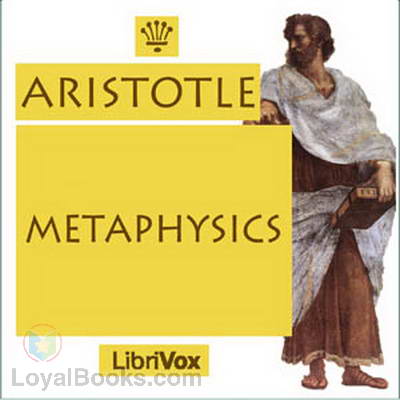
By: Aristotle (384 BC - 322 BC)
Aristotle's "Metaphysics" is a thought-provoking and complex work that delves into the fundamental nature of reality and existence. In this seminal text, Aristotle explores the concept of being, causality, substance, and potentiality. He discusses the nature of substance and form, the distinction between actuality and potentiality, and the concept of the unmoved mover.
One of the most intriguing aspects of this work is Aristotle's examination of the principles that underlie the natural world and the cosmos. He offers a detailed analysis of the four causes – material, formal, efficient, and final – and their role in explaining the origin and development of all things.
Aristotle's writing is both profound and challenging, making "Metaphysics" a dense but rewarding read for those interested in delving into the intricacies of metaphysical philosophy. While the text can be difficult to navigate at times, the intellectual depth and insight provided by Aristotle make it a valuable resource for anyone seeking a deeper understanding of the nature of reality and existence. Book Description:
Metaphysics is essentially a reconciliation of Plato’s theory of Forms that Aristotle acquired at the Academy in Athens, with the view of the world given by common sense and the observations of the natural sciences. According to Plato, the real nature of things is eternal and unchangeable. However, the world we observe around us is constantly and perpetually changing. Aristotle’s genius was to reconcile these two apparently contradictory views of the world. The result is a synthesis of the naturalism of empirical science, and the mysticism of Plato, that informed the Western intellectual tradition for more than two thousand years. At the heart of the book lie three questions. What is existence, and what sorts of things exist in the world? How can things continue to exist, and yet undergo the change we see about us in the natural world? How can this world be understood? (Introduction adapted from Wikipedia.)
|
